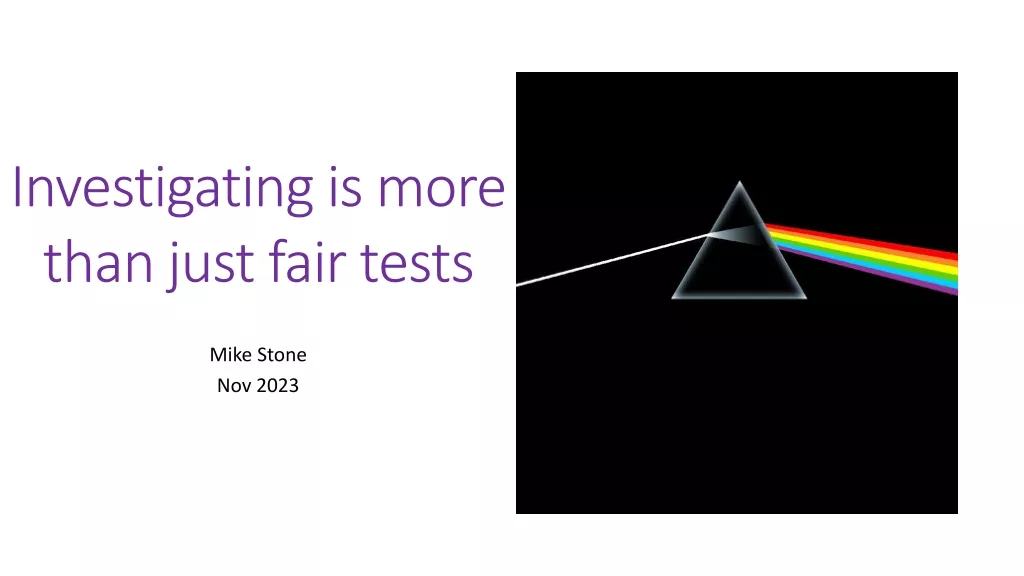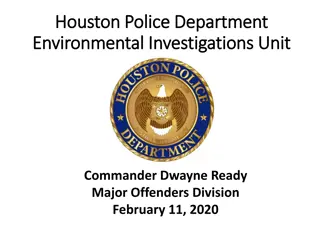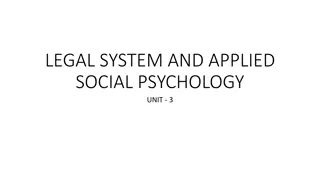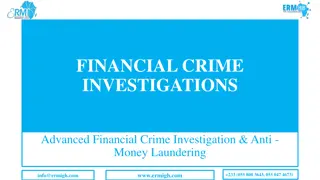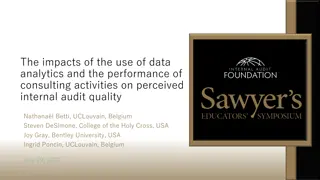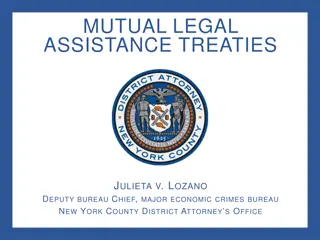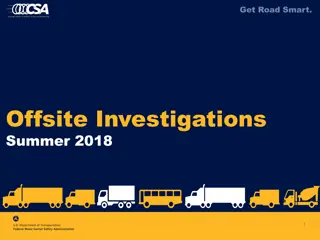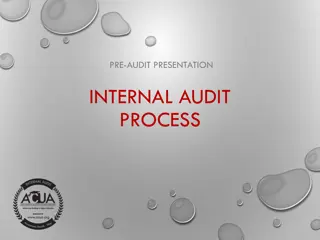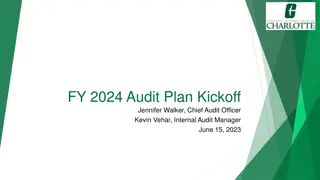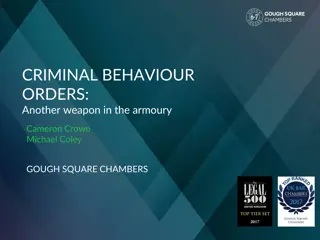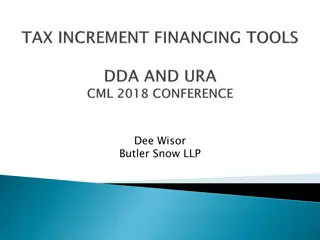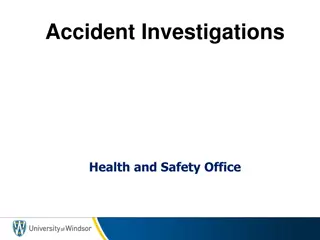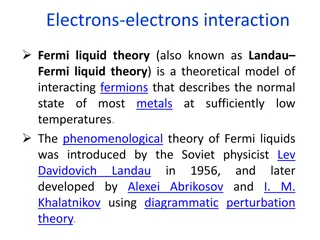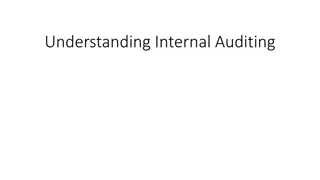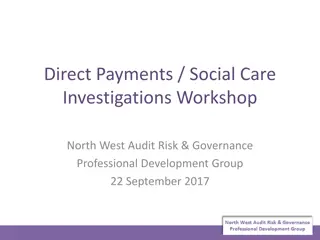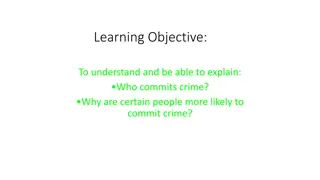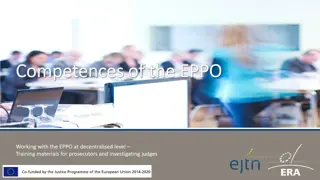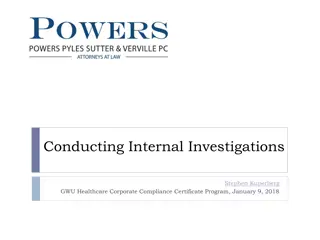Practical Considerations for Interacting with Criminal Authorities During Internal Investigations
This content discusses the legal obligations and privacy issues involved when interacting with criminal authorities during internal investigations. It covers topics such as revealing information, privacy concerns with devices, documenting investigations, and standard procedures for requesting information.
Download Presentation

Please find below an Image/Link to download the presentation.
The content on the website is provided AS IS for your information and personal use only. It may not be sold, licensed, or shared on other websites without obtaining consent from the author.If you encounter any issues during the download, it is possible that the publisher has removed the file from their server.
You are allowed to download the files provided on this website for personal or commercial use, subject to the condition that they are used lawfully. All files are the property of their respective owners.
The content on the website is provided AS IS for your information and personal use only. It may not be sold, licensed, or shared on other websites without obtaining consent from the author.
E N D
Presentation Transcript
PRACTICALITIES RELATED TO THE INTERACTIONS WITH CRIMINAL AUTHORITIES DURING INTERNAL INVESTIGATIONS
TOPICS OF DISCUSSION Legal obligations to reveal/ provide information related to the object of the investigation, based on search warrants and requests to submit documents/ information; Privacy issues in connection with devices (laptops, tablets, mobile phones) detained by the employees, containing information related to other matters/ clients of the company or confidential information, object to a search warrant; Documenting an internal investigation and potential risks related to an external investigation, performed by public authorities, with respect to search procedures or requests to submit documents/ information.
STANDARD PROCEDURES TO REQUEST INFORMATION According to the national criminal law provisions there are three main procedures to gather information/ documents from a company. THE PROSECUTOR S ORDINANCE TO SUBMIT WILLINGLY THE REQUESTED INFORMATION The most common procedure The letter from the prosecutor/ police officers includes precisely the information needed and the relevant period of time No additional information is expected by the judicial authorities
THE PROSECUTOR S ORDINANCE TO COLLECT DOCUMENTS OR INFORMATION Performed by the police officers, when the subject refuses to willingly submit the requested data Criticized as search warrants in disguise , very seldom seen in practice; The information information requested must be handed over immediately The object object of the procedure is precisely described
THE SEARCH WARRANTS Issued by the judge Their object is oftentimes vague, inexactly expressed (e.g. all documentation regarding the relation between the company and client X) Sometimes the documentation collected exceeds the limits of the investigation, especially when the proceedings are being carried out by police officers delegated in the case for this purpose only Sometimes the envisaged period of time is not properly indicated or the police officers decide to collect information related to a wider period of time
COLLECTING IT DEVICES BELONGING TO THE COMPANY Although the investigation may target the actions of one particular individual, other devices might be collected as well, when believed to contain relevant information There is no control of the interested party over the search itself. The concerned parties have no say in choosing the key words, the prosecutor choose whatever considered relevant for the case, oftentimes the chosen keywords are not disclosed documents related to the search procedure The individual who used the collected items may be present, although this right it is not expressly provided by the law; The only attorneys who have the right to attend the IT search are the attorneys suspects/defendants in the case, as opposed to the home search when the individual/entity have the right to an attorney The stockpiled on the device is exposed to the search. The IT search entails copying the entire information from the devices to external storage devices and afterwards searching relevant information using key- words on their own devices. Usually the parties/attorneys assist during the copying procedure, not on the search itself entire information may terms of the the in the searched concerned
COLLECTING IT DEVICES BELONGING TO THE COMPANY SERVICE 1 SERVICE 2 Should the search require the access of other IT systems located on the collected devices, the prosecutor may obtain from the judge the extension of the search warrant to those systems SERVICE 3 Any objections with respect to the procedure can be included in the IT search minutes and discussed before a judge at a (far) later date, during the preliminary chamber. There are no immediate nor substantial remedies SERVICE 4
POTENTIAL RISKS RELATED TO DOCUMENTING THE INTERNAL INVESTIGATION The internal investigation reports, statements gathered by the employees, expert opinions, any type of analysis Can become evidence in the criminal file, collected during the aforementioned procedures (as documentation or information stocked on the devices collected) When an outside investigation has been commenced it might be in the Company s interest to involve a minimum number of personnel, especially when the investigation focuses on conduct that potentially implicates corporate management
POTENTIAL RISKS RELATED TO DOCUMENTING THE INTERNAL INVESTIGATION The attorney-client privilege may offer protection to all the activities correlated to the internal investigation, should the activity itself is performed by an attorney or carried out in the presence of an attorney (e.g. discussions with an expert, interviewing the company s employees, drafting reports) There is no determined cooperation credit provided by the law for the benefit of the companies, therefore there is no guarantee regarding reduced civil damages and criminal penalties for the company that voluntarily discloses misconduct that was previously unknown to the government
POTENTIAL RISKS RELATED TO DOCUMENTING THE INTERNAL INVESTIGATION According to the national law, companies, by their governing bodies, have the obligation to notify the judicial authorities whenever they become aware of operations that involve the circulation of amounts of money, goods or other values that are supposed to originate from corruption offences (bribery, influence peddling), offences assimilated to corruption (abuse of office, misusing public funds) or offences in connection with corruption (offences against the financial interests of the European Union). There is no relevant case law settling the conflict between the above obligation and the right against self-incrimination Cooperating with the authorities in an ongoing criminal investigation and undertaking appropriate remedial measures in response to a violation may be taken in consideration when establishing the amount of the sanctions
THANK YOU! Ana Popescu Senior Associate ana.popescu@albu-legal.ro M: +40 741 207 957 23 Roma Street, District 1, Bucharest, Romania www.albu-legal.ro


